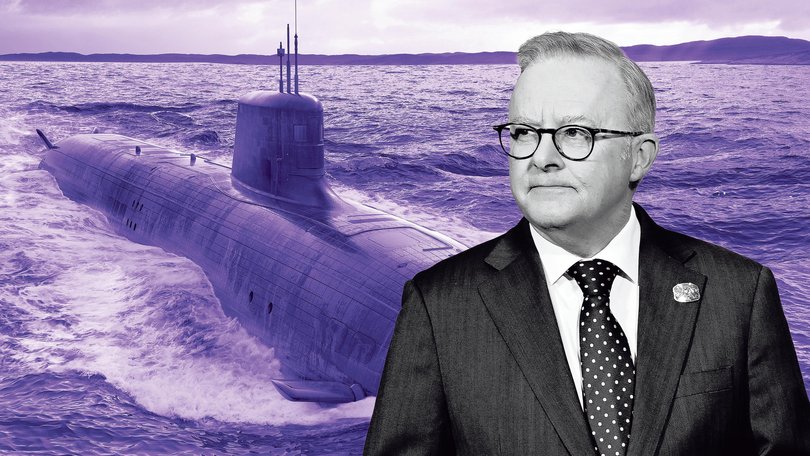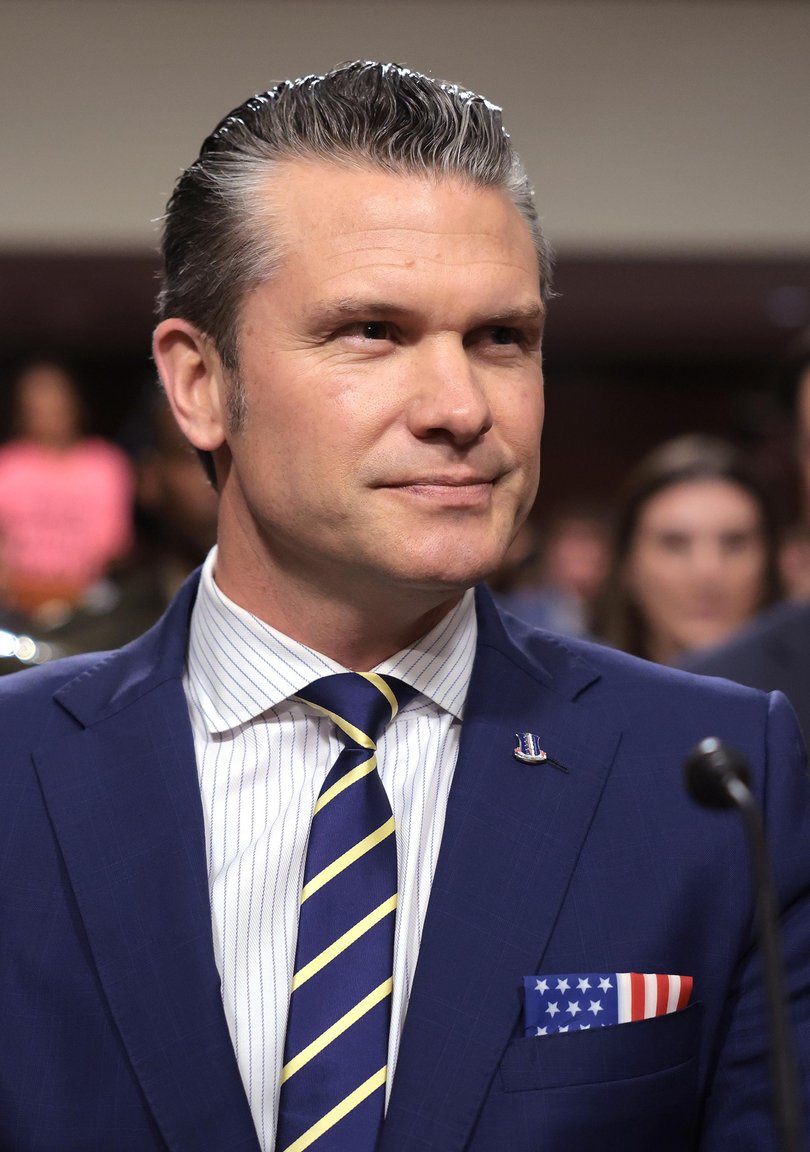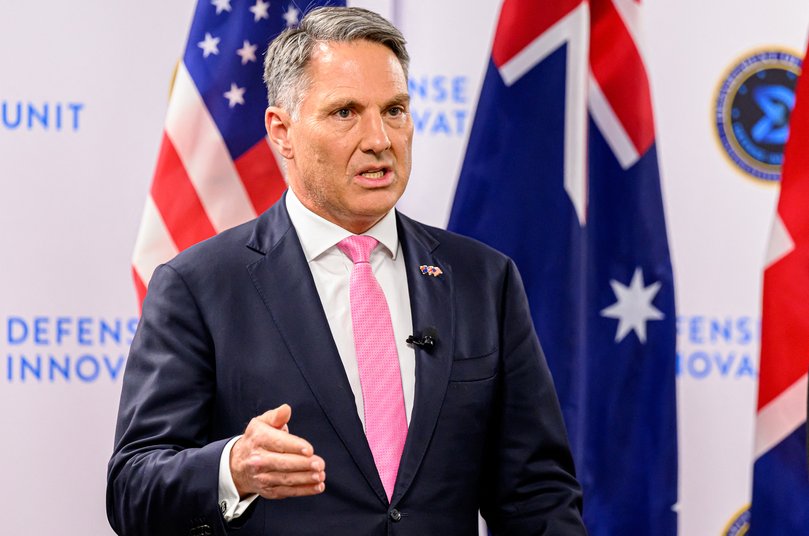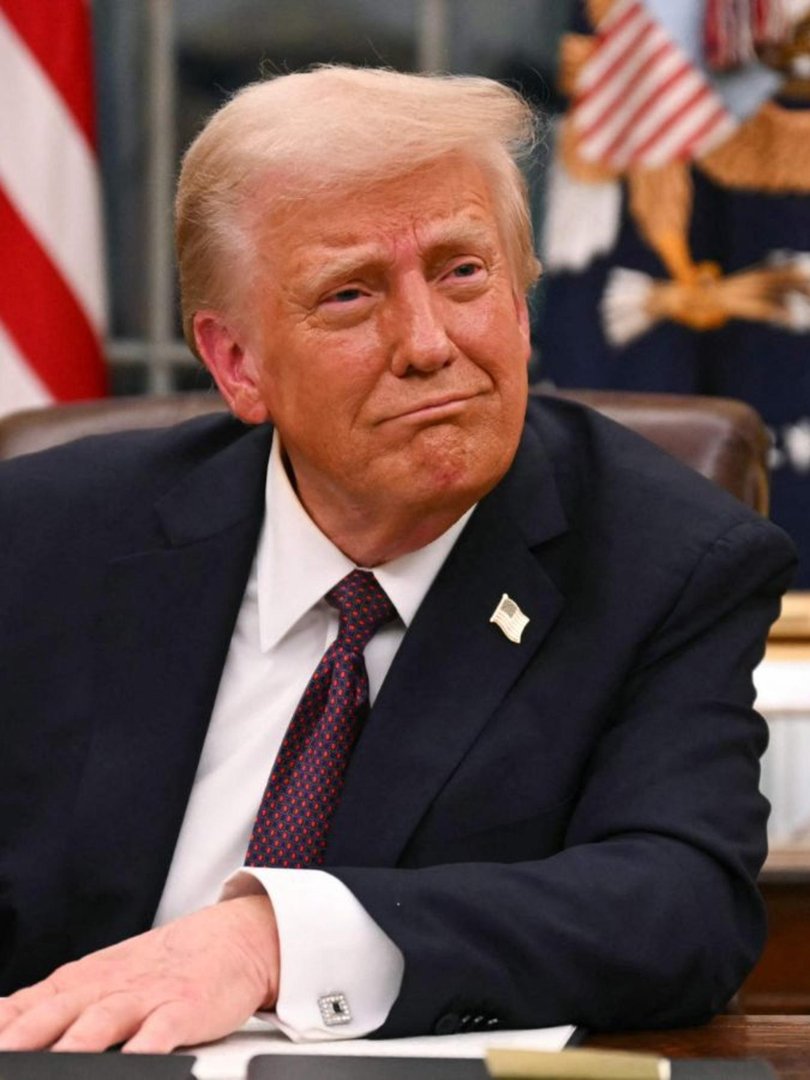PAUL MURRAY: Prime Minister Anthony Albanese and his Government are torpedoing relationship with the US
The Prime Minister’s resistance to increasing defence spend to reasonable levels risks putting Australia at risk well into the future.

It’s brutally realistic that the compulsion to fight for your life and your country’s existence can affect someone’s thinking about national defence.
Israelis don’t have the luxury of wishing and hoping that the world was a more peaceful place.
Nor do the Ukrainians. Or the Taiwanese. An existential threat will focus the mind on how much to spend on your survival.
Sign up to The Nightly's newsletters.
Get the first look at the digital newspaper, curated daily stories and breaking headlines delivered to your inbox.
By continuing you agree to our Terms and Privacy Policy.Do Australians need a more obvious regional menace before we start to think seriously about our national security?
As if China didn’t make it plain enough with a live firing drill off Sydney and what was obviously meant to be a humiliating circumnavigation of our coastline by part of its navy just to ram home how defenceless we really are.
If and when China wants to do anything about it. Should we just bet that it doesn’t?
Instead, stand back wishing and hoping while China buys off another of our regional neighbours that before President Xi Jinping’s elevation — and his aggressively expansionist mindset — it didn’t care a fig about.
Cash-splashing agreements like the so-called Comprehensive Strategic Partnership with the far-distant Cook Islands, all demanding adherence to the One China policy, hardly reflect an altruistic interest in the welfare of the region’s inhabitants well beyond its horizons.

In the face of a more dangerous world, Australia’s dripping-wet lefties write letters to the editor calling for peace.
Write them to Xi. And Putin. Or the Ayatollah. Good luck there.
The peaceniks admire our Foreign Minister, who always finds some mealy-mouthed way of censuring Israel’s efforts to defend itself, words that barely conceal her contempt for the Jewish state.
Our Prime Minister, who never matured his political leanings from indoctrination as an undergraduate Bolshevik, waves away demands for increased defence spending like an unwanted smell.
The only thing Anthony Albanese ever publicly professed a desire to fight is “Tories.” And he’s obviously far more comfortable in the ideological trenches than confronting the real emerging threats to our national security.
Albanese was saved a potential confrontation with Donald Trump this week over his resistance to commit to a realistic national security target because the US President was too busy helping a worthy ally.
One that more than pulls its weight in making the world a safer place.
The Americans have already decided that Australia is dragging its feet on defence spending after repeated proddings.
But Albanese’s day of reckoning for his neglect of our national security will arrive one way or another soon enough. Reality has a nasty way of crashing in.
We should all pray that we never face the same sort of existential threats that Israelis wake up to every day. But look at how it responds.
Israel spends about 8.8 per cent of its GDP on defence, some US$46.5 billion provided this year. We have set aside US$38.5b ($59b) which represents a shade over 2 per cent.
Israel’s economy is about a quarter the size of Australia’s, 34th in the world against 13th. We are significantly wealthier with GDP per capita of US$57,000 against US$42,000. It has a population of 9.5 million against 27 million.
You could fit Israel’s land mass 350 times into Australia’s. Tasmania is three times bigger. And it is squeezed between countries that want to destroy it while we sit in the splendid isolation of an island continent at the bottom of the world.
In the cyberworld, that isolation offers no defence. When Israel launched its attack on Iran’s nuclear and missile launching facilities eight days ago, it had more than 200 fighter planes in the air simultaneously. Our air force notionally has 87.
Obviously, the defensive needs of our two counties are vastly different. There’s no way Israel has the same requirement as us for submarines, but it still has five German-made diesel-electric boats with air-independent propulsion for stealth operations. All are believed to be capable of carrying nuclear-armed missiles.

We have six conventionally-armed Collins-class diesel-electric submarines of which only two are believed to be operational at any time.
Which is why our commitment to the AUKUS deal and its provision of long-range stealthy nuclear-powered submarines from the US by the early 2030s is fundamental to our defence posture.
And which is why the US decision to review the AUKUS deal against Trump’s America First policy settings is far more serious than Labor is conceding to the public.
Australians need to have a very clear understanding of the timeline that has led to this very serious brinkmanship and how our “gift horse” attitude has been so damaging.
The annual Shangri-La security dialogue in Singapore, much of it held behind closed doors, is one of the most important meetings held by world leaders to discuss the Asia-Pacific region.
There were two notable firsts this year. A European, President Emmanuel Macron of France, delivered the keynote address, signifying piqued interest in the region’s tensions, and the Chinese Defence Minister was not present for the first time since 2019.
But the highlight was the address by US Defence Secretary Pete Hegseth who said America was “reorienting towards deterring aggression by communist China” and seeking a situation of “peace through strength” in which China “cannot dominate us or our allies and partners.”
“Any attempt by communist China to conquer Taiwan would result in devastating consequences for the Indo-Pacific and the world,” Hegseth said. “We are not going to sugarcoat it. The threat China poses is real. And it could be imminent.”
He laid down the gauntlet: “President Trump has said that communist China will not invade Taiwan on his watch.”
Hegseth also had a public message for America’s allies in the region: “We ask — and indeed, we insist — that our allies and partners do their part on defence. Sometimes, that means having uncomfortable and tough conversations.”
And he set a standard for the commitment: “NATO members are pledging to spend 5 per cent of their GDP on defence, even Germany.
“So it doesn’t make sense for countries in Europe to do that while key allies in Asia spend less on defence in the face of an even more formidable threat, not to mention North Korea.”

While that was immediately reported, Hegseth’s private demands to Australian Defence Minister Richard Marles were not.
As the heat rose around Hegseth’s comments, Albanese was again asked about America’s demand to the Europeans to lift defence spending commitments — and again he came up short.
“What you should do in defence is decide what you need, your capability, and then provide for it,” Albanese said. “That’s what my Government is doing.”
He was leaning, not lifting. Typically.
In a clear response to that, the Americans immediately released a readout of Hegseth’s bilateral meeting with Marles in which he said Australia should increase its defence spending to 3.5 percent of its GDP as soon as possible.
That the Americans saw the need to do that should be deeply embarrassing to Albanese and Marles. But they attempted, as usual, to deflect it.
And then the Americans announced the review of AUKUS. That is the pickle we are in.
If it is their genuine intention to measure the deal against America First principles, it is hard to see how it can stand in its present form. The so-called “assurance” Trump gave on the fly to the UK Prime Minister at the G7 on the future of the deal is meaningless for us.

It needs output of 2.3 new Virginia-class submarines a year by the early 2030s, but is currently running at 1.2 with no signs of immediate improvement despite an extra injection of $10 billion to boost production.
The Americans have already decided that Australia is dragging its feet on defence spending after repeated proddings. Trump has almost certainly concluded that Albanese is recalcitrant.
Regardless of what is going on behind the scenes, Trump requires his allies to make public shows of fealty. Albanese was given plenty of opportunity, but preferred to stubbornly decline.
The proposal by former home affairs secretary Mike Pezzullo, author of the 2009 defence white paper, to offer the submarine repair shipyard at Henderson, south of Perth, as a joint US/Australian facility went unheeded.
The US Navy has a severe backlog in its submarine maintenance program and assured access to Henderson would help clear that, allowing more boats at sea.
That in turn would reduce the risk of a US president in 2032 not certifying the transfer of US subs to Australia — as required by law — on the grounds that it would degrade the US submarine capability.
Albanese’s ingrained leftist instincts against increased defence spending — which traditionally drops under Labor governments anyway — are obvious to everyone. And that includes Trump.
For electoral gain, Labor ruthlessly demonised Peter Dutton to look like he was standing too close to Trump.
Now Albanese will be made to pay for not being close enough.
